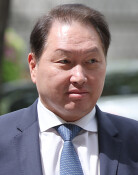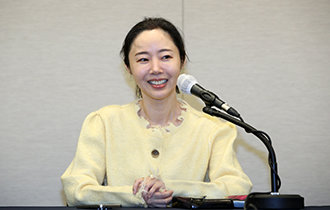[Opinion] East Asian Cooperative Is the Way to Survive
[Opinion] East Asian Cooperative Is the Way to Survive
Posted January. 23, 2002 11:55,
There is a great change taking place in the world. In a time when such huge changes are occurring, every nation must actively form a `world plan` for the future and a scientific `world strategy`. Our nation, however, has not had its own unique world plan and world strategy. After independence, we were content merely to survive in the Cold War, but the Cold War ended long time ago and the global order is undergoing a major change in perception. Our foreign relations must have its own goals and strategy. What is the number 1 goal for Korea`s world plan? In a word, it must be a `new East Asian cooperative.`
The most important reason for this is the necessity of preventing political and militaristic authoritarianism from emerging in East Asia. Historically, the rise of authoritarianism in East Asia has led to strife in the Korean peninsula, exacerbation of conflict, and the suffering of our people. Hence, building a peaceful security cooperative in East Asia is a matter of life and death for us.
Second, we need this in order to prepare ourselves for effectively dealing with the challenge of globalization. Establishing an economic, financial regional cooperative structure is fundamental to increasing our involvement in the global exchange system and for preparing ourselves for the instability in the international financial market. We have to build a cooperative system in East Asia that will be comparable to the European Union or NAFTA.
Third, we must do this in order to make our economy an advanced industrial one in name and in fact. East Asia will be the most economically vibrant region in the world in the 21st century. By magnifying free trade in the region and strengthening strategic collaboration through the regional cooperative structure, we have to achieve a second leap for the Korean economy.
Fourth, it is to accelerate our people`s cherished hopes for reunification. The issue of reunification is not merely a domestic issue. We must find an opportunity for South-North reunification within the large waves created by the establishment of East Asia security and economic cooperative.
How, then, must we proceed? First, the basic strategy and principles underlying this `Korean East Asian plan` need to be clearly established. Strengthening the relation with allies should be the most minimal strategic requirement where as expanding cooperation with multiple nations should be the maximal strategic requirement. In East Asia, there are 20th century model nations who are pursuing greater wealth and military strength as well as 21st century model nations who are diversifying their national goals and political ideology (central government, regional organizations, NGO, etc.). We need a strategy that combines these two. On the one hand, we need to strengthen bilateral Korea-U.S. and Korea-Japan relations, while pursuing a strategy of `open multilateralism` that cooperates with Russia, Mongolia, and all the member nations of ASEAN. Frankly, China and Japan will not jump on the multilateralism boat all that quickly and may try to push for a `closed multilateralism` with lingering hegemonic ambitions even if they do go for the ride. We, however, must actively persuade them because only an open multilateralism that promises peace in East Asia can oppose hegemonic powers, and simultaneously accord with the principles of democracy which respects the opinions of less powerful nations.
Second, in the future we can no longer conduct a defensive and passive political diplomacy, but must greatly expand diplomatic relations by pursuing aggressive, active diplomacy which encompasses military, trade, culture, and civilian affairs. We can pursue this diplomacy with our world plan and form a comprehensive strategy that deals with not only the other nation`s government, but its opposition party, businesses, intellectual community, press, and NGOs. Decades ago, the author witnessed the current ruling party in Taiwan setting up its office in Washington D.C. during its opposition days, dispatch dozens of its experts, and explaining and persuading American government, academics, think tanks, and NGOs on the adequacy of their Taiwan-U.S. relations policy. I was greatly moved by seeing a mere opposition party in Taiwan conducting a campaign which neither the ruling party nor the opposition party, probably not even the government, were able to do in Korea. Instead of repeating how difficult foreign relations with superpowers are, we have to think deeply about whether we have made a real systematic effort to persuade these nations.
The world order surrounding the peninsula today is reminiscent of the end of the 19th century. In order to avoid the same kind of tragedy that happened 100 years ago, we must set a East Asia plan and world strategy and actively persuade our neighboring nations, both the future powerholders and the less powerful. We must make this a century when our people and East Asia can emerge together as victors.
Park Sae-Il (Seoul National University, Professor of Economics and Law)







